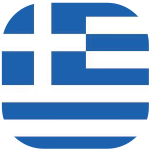Science and Music: Learning by Solving the Riddle of a Mysterious Connection
The action is a combination of presentation and interactive exhibition. Total duration is one hour and can be performed twice (preferably on Saturday and Sunday).
The action is aimed at middle school and high school students. It is preferable to take place indoors and with a group of participants (with a maximum number of participants of 30 people).
Presentation part (20 minutes)
- Brief presentation of the “ΕπιSTEAMουσική” project. This presentation concerns a brief reference to the project https://episteamousiki.athenarc.gr, the goals of STEAM education and the (digital, mainly) tools that facilitate this educational approach regarding music.
- Presentation of the iMuSciCA platform https://workbench.imuscica.eu and the tools used in ΕπιSTEAMουσική. In this presentation, the contributors will present some tools of the said platform, showing some of the tools that will become available in the interactive part that follows.
- Reference to the competition that will be held as part of the ΕπιSTEAMουσική project. In this section, reference will be made to the school competition that will be organized as part of ΕπιSTEAMουσική.
Part of interactive activities (40 minutes)
- Playing with the frequencies with our fingers. In this interactive activity, participants, one person at a time, play music by waving their fingers in the air. They will also be able to see elements of the sound they create (frequencies and intensities), while they will be able to “tune” the interactive app to play notes in specific musical scales.
- Making and playing air guitar. In this interactive app, participants, one person at a time, can build a virtual guitar and bring it into a virtual world where they can set chords and play the guitar by waving their hands in the air, listening to the result of the performance. them in real time.
- Analyzing the sound of a string. In this interactive activity, participants, under the guidance of the organizers, can analyze the sound of the string of a virtual monochord they are building, listening piece by piece to the elements (harmonics) that make up that sound.
- How can the computer understand what I play on the guitar? This interactive activity brings participants closer to research activities involving artificial intelligence and music. Participants are able to play a regular guitar and observe how an artificial intelligence method tries to figure out from the camera image and the sound of the guitar what is being played on the guitar fretboard at any given time.
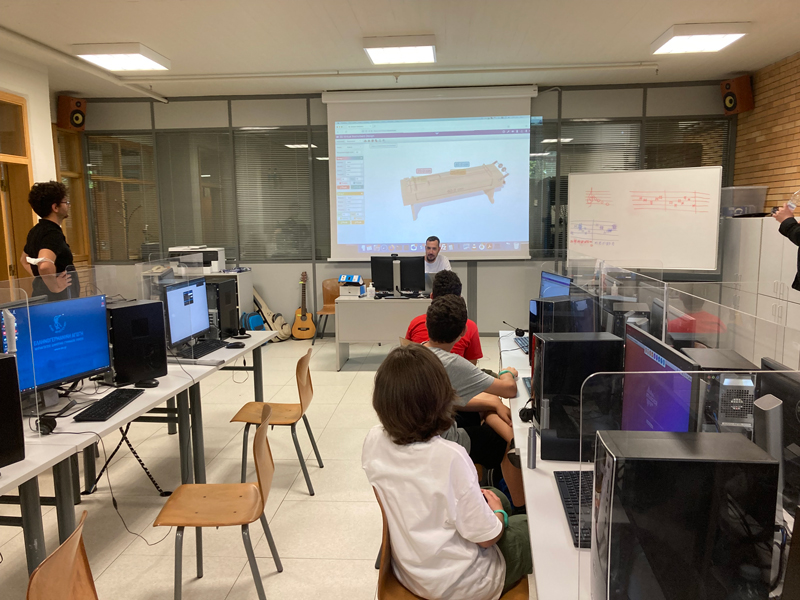
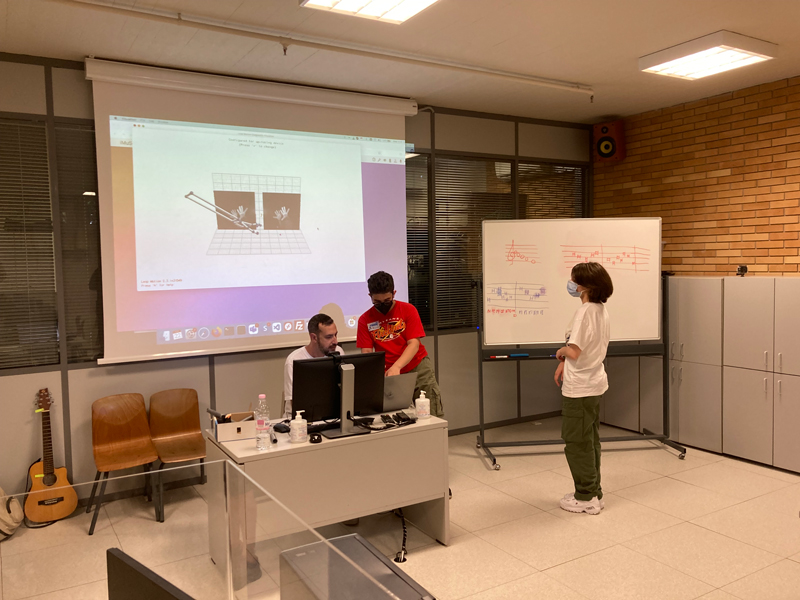
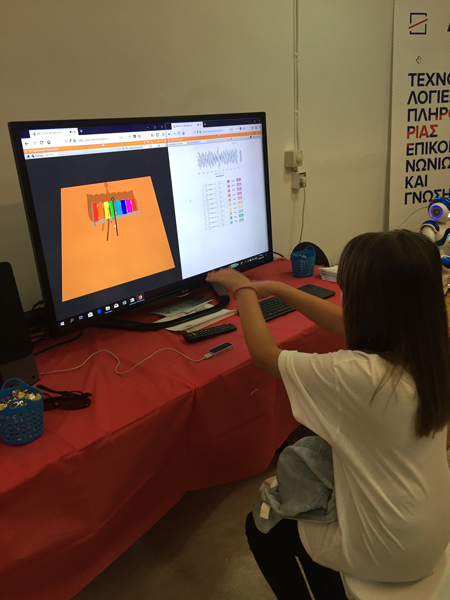
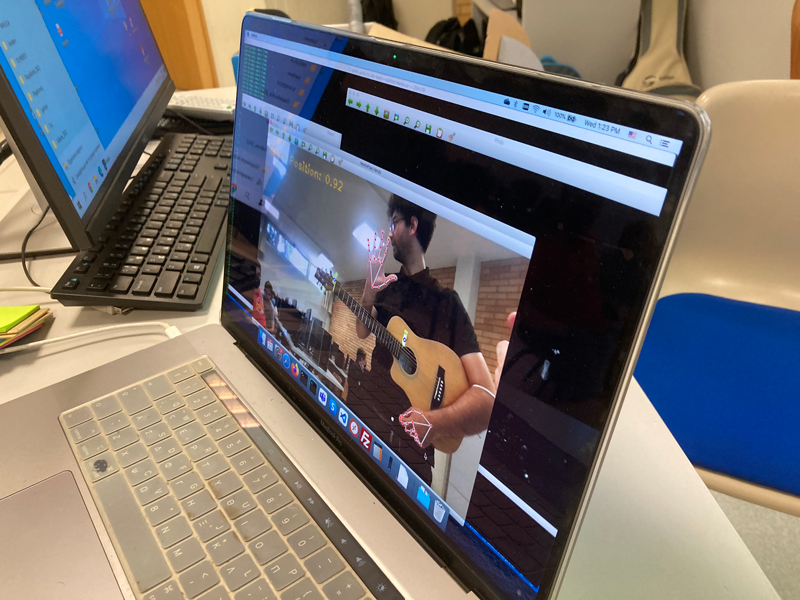
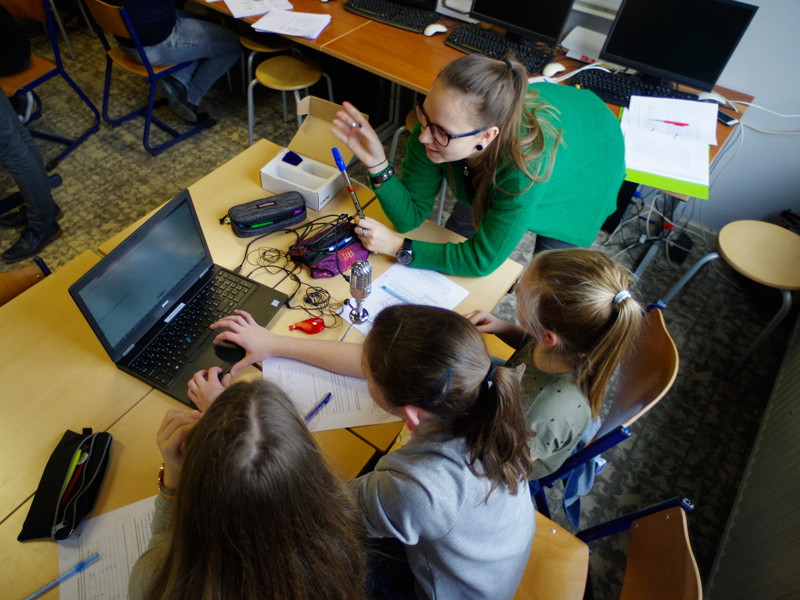
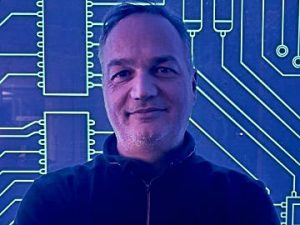 Vassilis Katsouros is the Director of the Speech Processing Institute (IEL) of the Athens Research Center (EK Athens) since June 2019. He graduated in 1992 from the Department of Electrical and Computer Engineering of the National Technical University of Athens, in 1993 he received with distinction his Master's degree in Communications and Signal Processing (M.Sc. with Distinction in Communications and Signal Processing) from Imperial College, University of London and in 1997 his PhD from the same University in mathematical modeling and stochastic control. His research interests include digital signal processing, statistical analysis, machine learning and artificial intelligence with applications to a wide variety of signals and data (voice, music, image, video, sensorial data, etc.). He has authored a significant number of scientific publications in the above fields in books, scientific journals, as well as international conferences.
Vassilis Katsouros is the Director of the Speech Processing Institute (IEL) of the Athens Research Center (EK Athens) since June 2019. He graduated in 1992 from the Department of Electrical and Computer Engineering of the National Technical University of Athens, in 1993 he received with distinction his Master's degree in Communications and Signal Processing (M.Sc. with Distinction in Communications and Signal Processing) from Imperial College, University of London and in 1997 his PhD from the same University in mathematical modeling and stochastic control. His research interests include digital signal processing, statistical analysis, machine learning and artificial intelligence with applications to a wide variety of signals and data (voice, music, image, video, sensorial data, etc.). He has authored a significant number of scientific publications in the above fields in books, scientific journals, as well as international conferences. 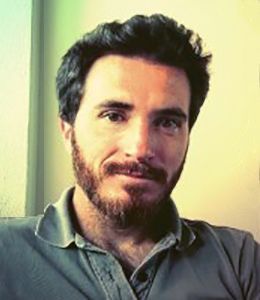 Maximos Kaliakatsos-Papakostas works as a researcher in the broader field of Music Informatics, focusing mainly on the combination of mathematics and cognitive science for the development of models for understanding and creating music, while dealing with audio signal processing at an academic and professional level. He has taught at undergraduate and postgraduate level in various departments courses belonging to a wide range of scientific fields around theoretical and computational mathematics, informatics and programming, digital signal processing and audio technology. At the same time, he is a musician and programmer developing interactive music applications as artistic tools, commercial products or in the context of research projects. He has completed basic studies in Mathematics, a master's degree in Computational Intelligence and a PhD in the use of Artificial Intelligence in Music.
Maximos Kaliakatsos-Papakostas works as a researcher in the broader field of Music Informatics, focusing mainly on the combination of mathematics and cognitive science for the development of models for understanding and creating music, while dealing with audio signal processing at an academic and professional level. He has taught at undergraduate and postgraduate level in various departments courses belonging to a wide range of scientific fields around theoretical and computational mathematics, informatics and programming, digital signal processing and audio technology. At the same time, he is a musician and programmer developing interactive music applications as artistic tools, commercial products or in the context of research projects. He has completed basic studies in Mathematics, a master's degree in Computational Intelligence and a PhD in the use of Artificial Intelligence in Music. About the ΕπιSTEAMουσική project: The object of the proposed ” ΕπιSTEAMουσική ” project is the creation of a Research and Innovation Hub in Education, which will have both a physical presence, as it will be located in four locations in Greece, and a digital one, in the form of a online platform, which will be accessible by students and teachers both in Greece and abroad. The STEAM Music Research and Innovation hub is aimed at secondary education (High School and High School) and refers to the scientific area STEAM (Science, Technology, Engineering, Arts, Mathematics), aiming at the teaching and learning of Natural Sciences, Technology, Engineering and of Mathematics through Music. The educational objective of the Hub will be implemented through interdisciplinary and interdisciplinary experiential workshops, which will take place both in the physical facilities of the Hub and through the online platform. These workshops will be framed by an integrated pedagogical approach to STEAM education, which is based on the principles of interdisciplinary and investigative and collaborative learning. At the same time, the educational content of the online platform of the Hub will be available for use in schools and will be supported by proposed interdisciplinary lesson plans and educational application scenarios in the form of projects.
About the online platform of ΕπιSTEAMουσική: The online platform of the project ΕπιSTEAMουσική, the object of which is the creation of a Research and Innovation Hub in Education. The website hosting the platform can be accessed by students and teachers both in Greece and abroad. The STEAM Music Research and Innovation hub is aimed at secondary education (High School and High School) and refers to the scientific area STEAM (Science, Technology, Engineering, Arts, Mathematics), aiming at the teaching and learning of Natural Sciences, Technology, Engineering and of Mathematics through Music. The educational content of the Hub’s online platform is available for use in schools and is supported by suggested cross-curricular lesson plans and educational application scenarios in the form of projects. The iMuSciCA online platform (https://workbench.imuscica.eu), already developed and available in various languages (among them Greek), will form the central core of the ΕπιSTEAMουσική node. The iMuSciCA platform is the result of a successful European program entitled “Interactive Music Science Collaborative Activities”.




The Athena Research and Innovation Center in Information, Communication and Knowledge Technologies (Athena RC) was founded in 2003 in three cities, Athens, Patras and Xanthi. It is the only research center in Greece that is exclusively focused on Digital Sciences and Technologies. Its structure includes three Institutes, on Language and Speech Processing, Industrial Systems, and Information Management Systems, respectively, and eight Units, on Technology Clusters, Space Programs, Robot Perception and Interaction, Environmental and Networking Technologies and Applications, Pharma-Informatics, Sustainable Development, Artificial Intelligence-Data Science-Algorithms, and Women’s Innovation and Entrepreneurship, respectively.
The vision of Athena RC is to conduct outstanding research in Information and Communication Technologies, pursuing solutions to global challenges, addressing local needs, and producing novel and deep technological results with a broad impact on other sciences, industry, and society at large. In addition to research on core problems in digital technologies, interdisciplinarity is a fundamental characteristic of the activities of Athena RC, with particular emphasis (but no limitation) on computational elements of the fields of precision agriculture, agri-food, precision medicine, biology, biodiversity, earth observation, space science, engineering, mechanics, linguistics, archaeology, and the arts. Next to its research portfolio, Athena RC is also very strong in innovation and entrepreneurial activities, including the co-foundation of several successful spin-off companies. The key asset of Athena RC is its researchers, collaborating faculty, engineers, other professionals, and students, whose deep technical expertise and extensive experience bring Athena to a position of prominence with respect to addressing and solving some challenging scientific and societal problems of our times.





